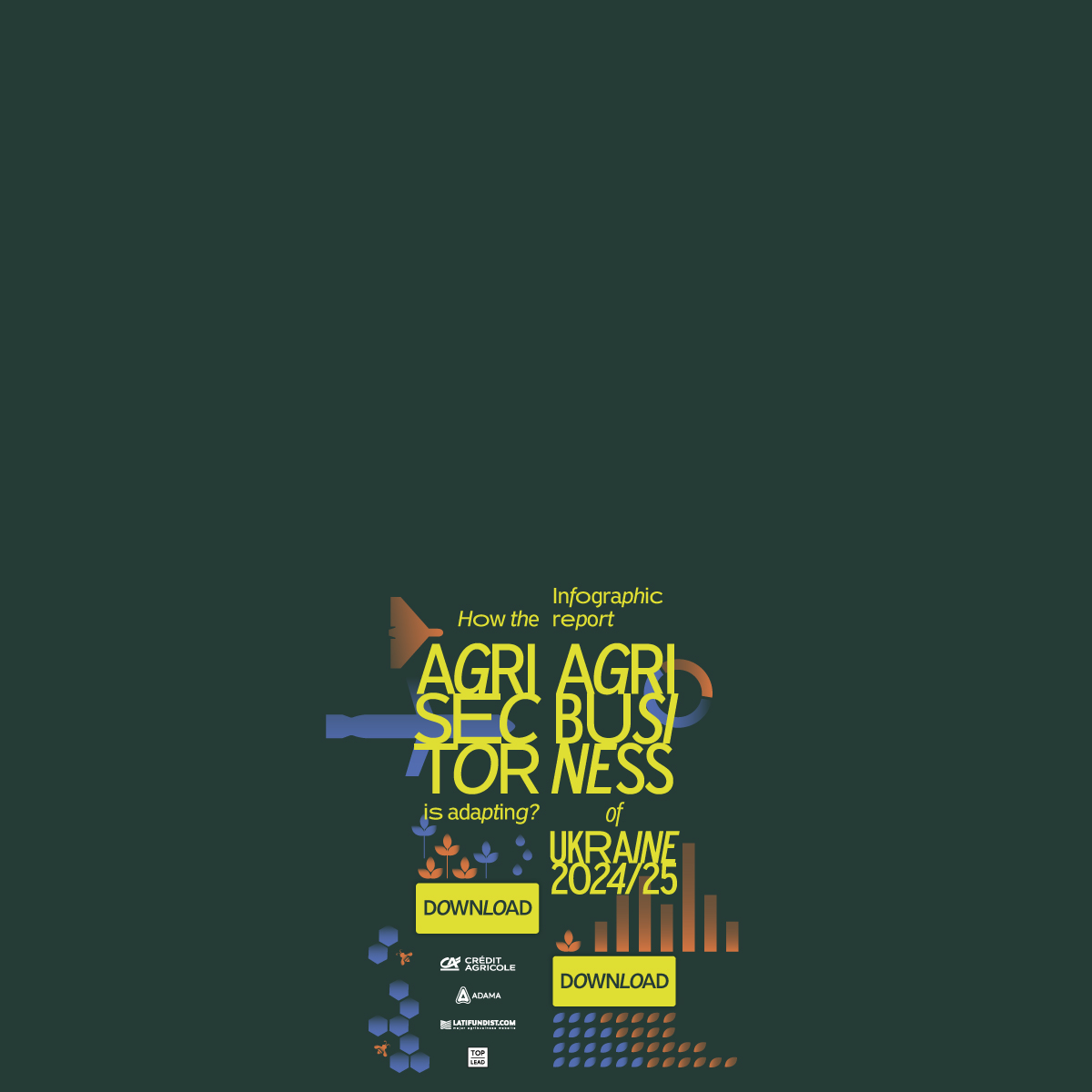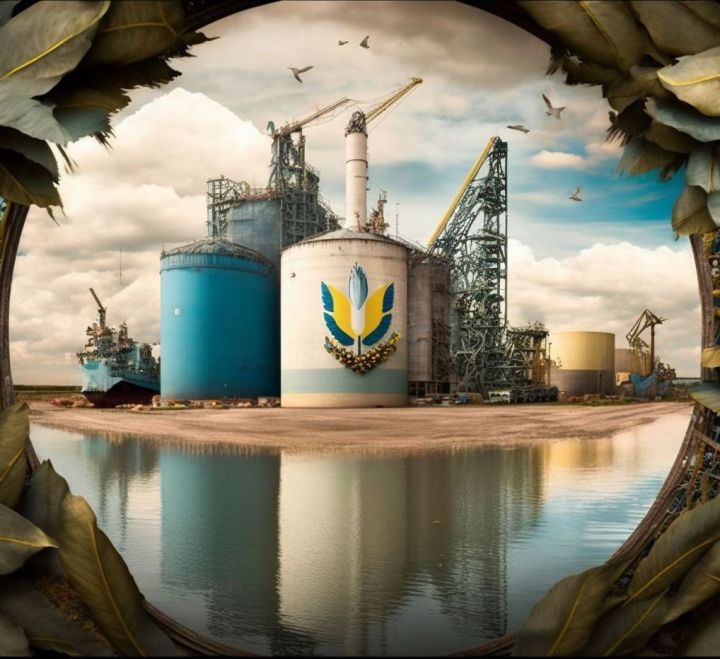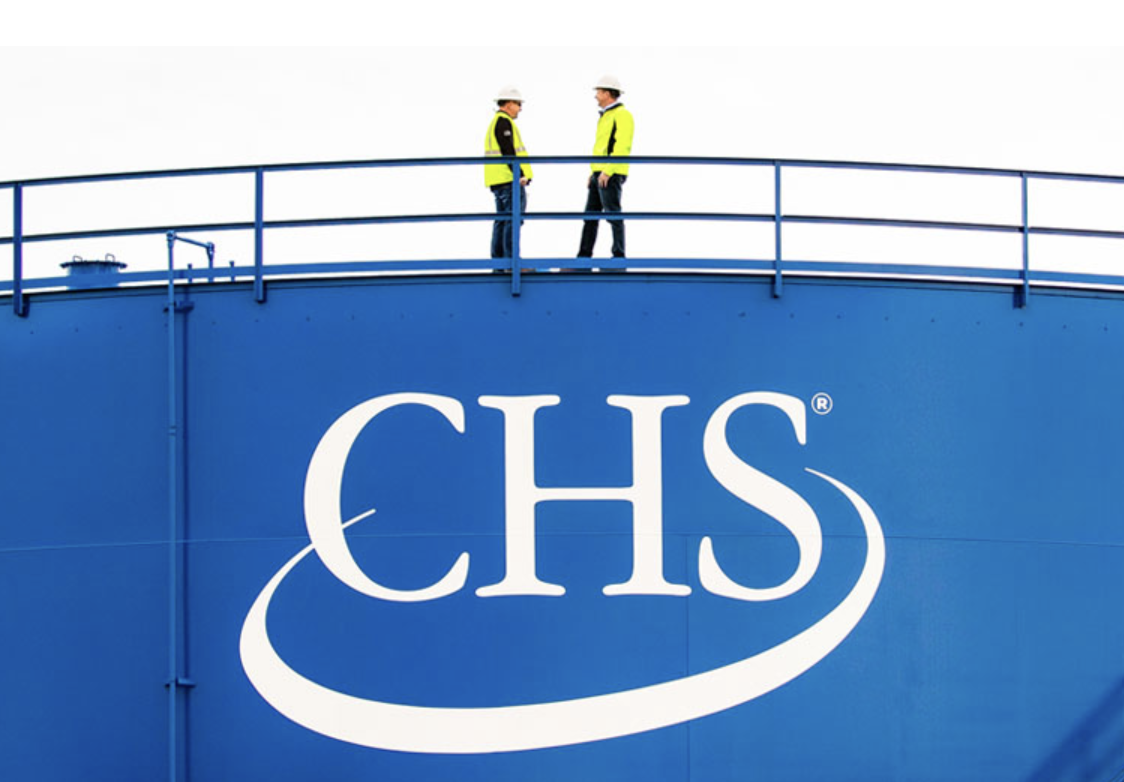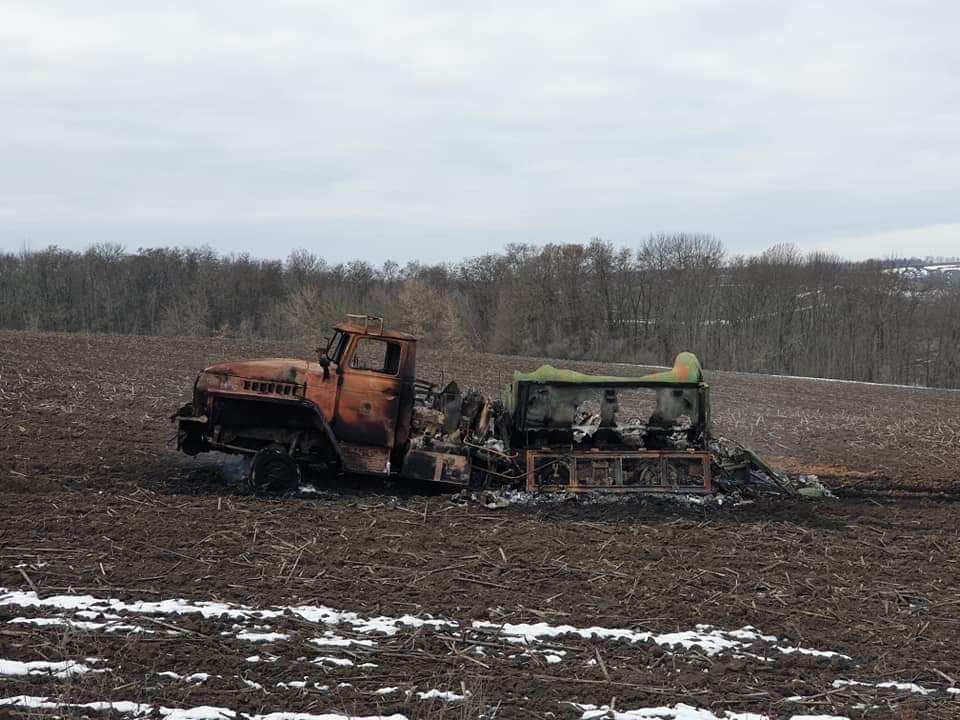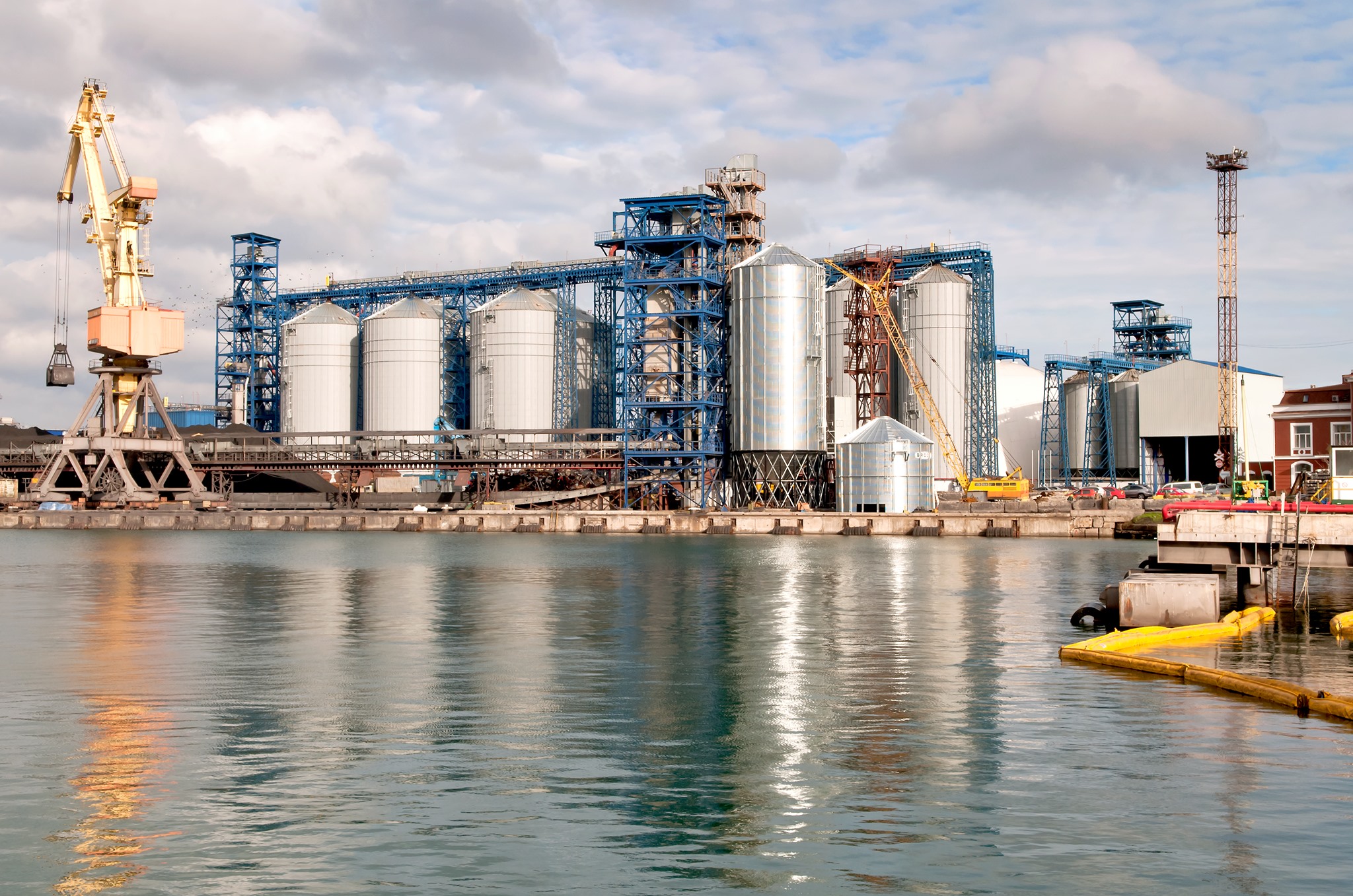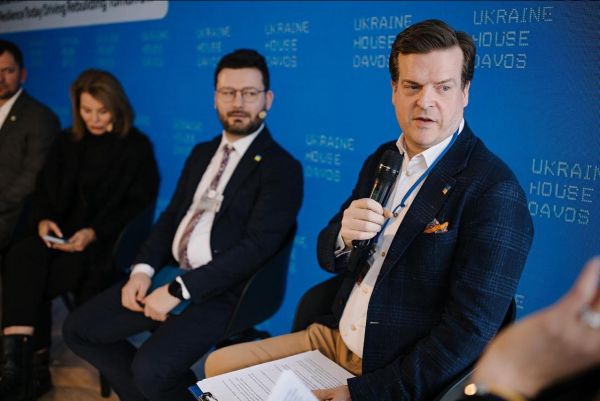Olympex Coupe International: Serial Default of Groza and Naumenko, and Again with American Investors
"So, what about Olympex?" this is the question traders started asking us at the end of December last year. Then the Odesa terminal Olympex Coupe was at the centre of a scandal — two American funds accused its owners Serhiy Groza and Volodymyr Naumenko of fraud. Funds issued nearly USD 100 million in loans to Odesa residents secured, inter alia, by grain; as a result, neither the money nor the grain was seen. The story reached international courts. Creditors say that they want to control the asset because Groza and Naumenko started transferring it to their own companies.
The line of defence of Groza and Naumenko: we planned to return the money, but the war got in the way, and the creditors want to take away the stevedoring business, which brings good income in the background of the "grain corridor".
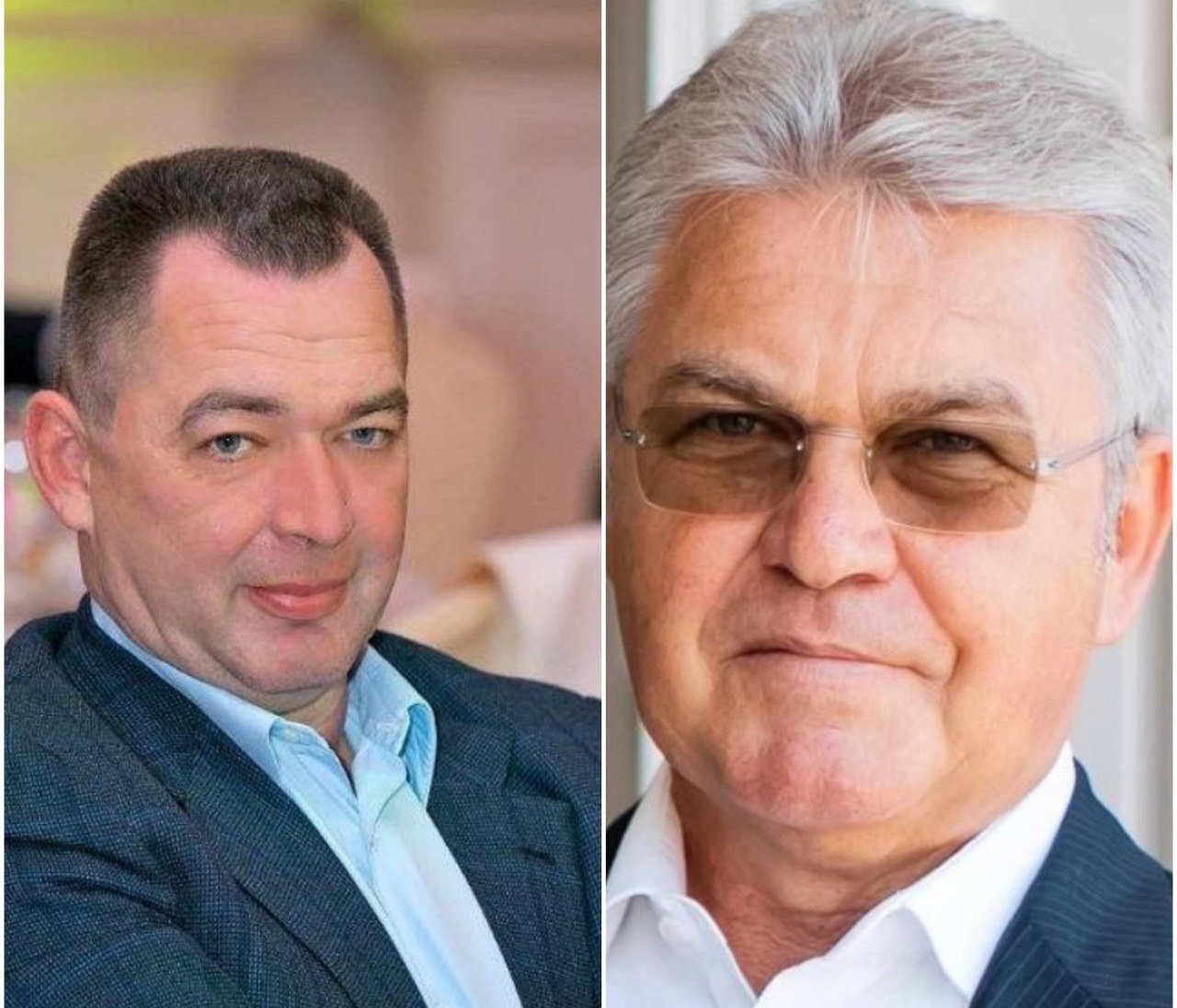
The history of Olympex and the ACP & Innovatus duo is not a small-town corporate war. Too big names are involved. Can it go beyond the boundaries of the industry and even affect relations with the United States, our main partner in the war with russia? It is possible. After all, according to our data, this story is already on the desks of the responsible persons of the US Embassy, the Office of the President and the Government.
During the preparation of the material, the traders we spoke to asked if we were wary of tackling this topic. Why? Because the owners of the terminal have a "hard reputation" in Odesa.
And it all started with the fact that...
At the beginning of February, two American hedge funds Argentem Creek Partners (ACP) and Innovatus Capital Partners (Innovatus) announced the start of bankruptcy proceedings for the company Olympex Coupe International. It is the main asset of GNT Group in Ukraine, owned by well-known Odesa businessmen Serhiy Groza and Volodymyr Naumenko.
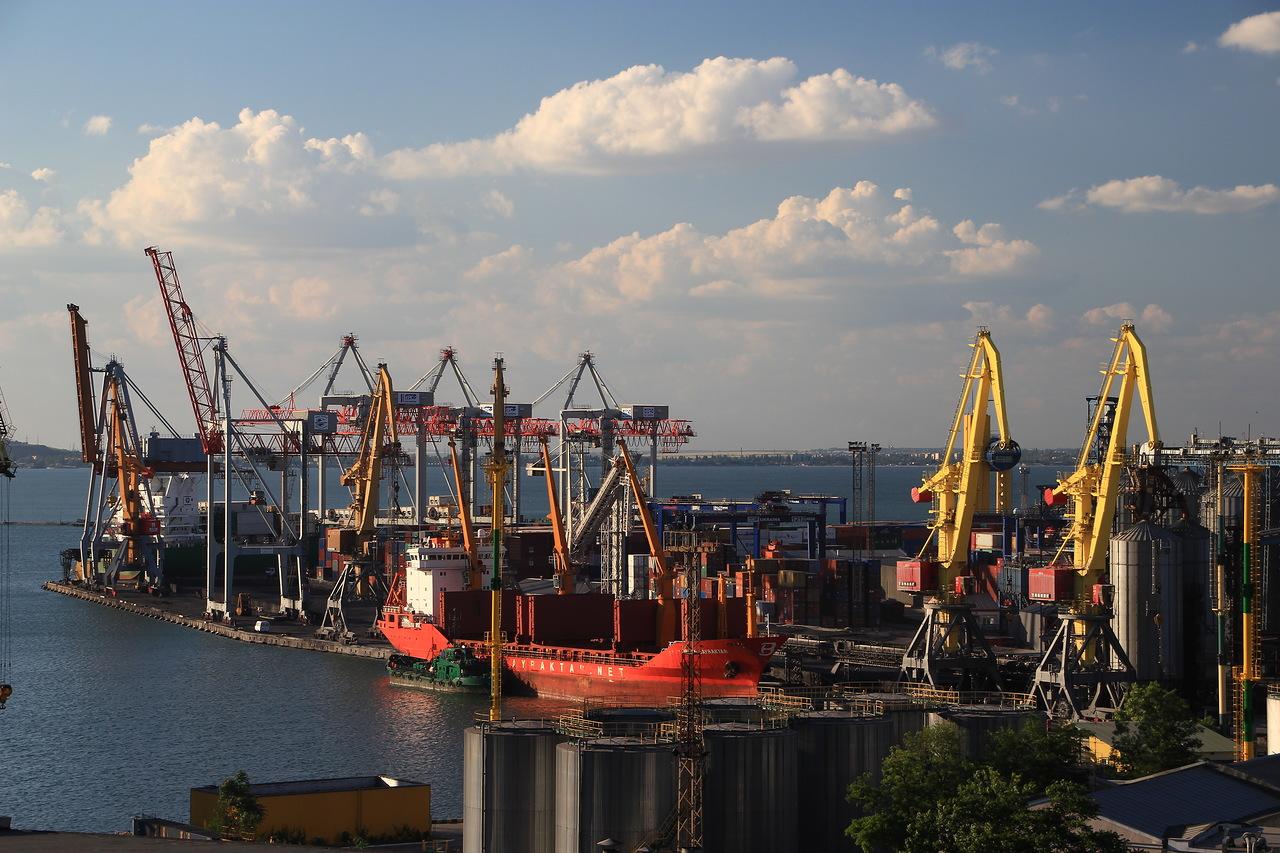
What led to this? At the end of last year, the funds issued two statements almost simultaneously. ACP quietly stated that GNT is not returning USD 75 million and hinted at "corporate wrongdoing" on the part of the owners. Innovatus was more forthright, claiming fraud and even using the war as an excuse to embezzle funds.
Subsequently, the creditors filed a bankruptcy lawsuit. In their opinion, this is the only way to "save assets from erosion and opaque actions of ex-owners Serhiy Groza and Volodymyr Naumenko, who, not informing the creditors, disposed of the pledged and own property — almost 400,000 tons of grain and sunflower seeds, worth approximately USD 130 million."
Such news disturbed the grain market for a reason. Olympex knows "every dog in Odesa" and beyond. Since only three ports — Odesa, Chornomorsk and Pivdenny — are working in the "grain corridor", the choice of export terminals is small, so many worked with Olympex.
On the other hand, American funds are little known to the wider agribusiness community. But, in fact, Americans have been working in Ukraine for quite some time.
Who are ACP and Innovatus?
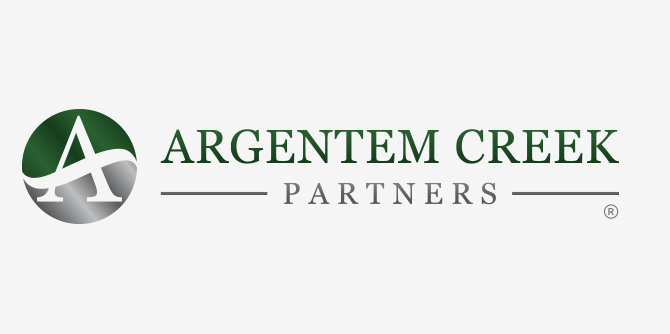
ACP specializes in lending to developing markets, in simple words — markets with increased risk, which includes Ukraine. In our country, they are remembered for accompanying several high-profile restructurings of public companies, in particular, the well-known case of the agricultural holding Mriya. Their portfolio also includes the "retracts" of Metinvest and Interpipe. In an interview with UNIAN, the regional manager of the fund, John Patton, cited the experience in these cases as an argument for Groza and Naumenko, because "they demonstrated significant shortcomings in the management of the company."
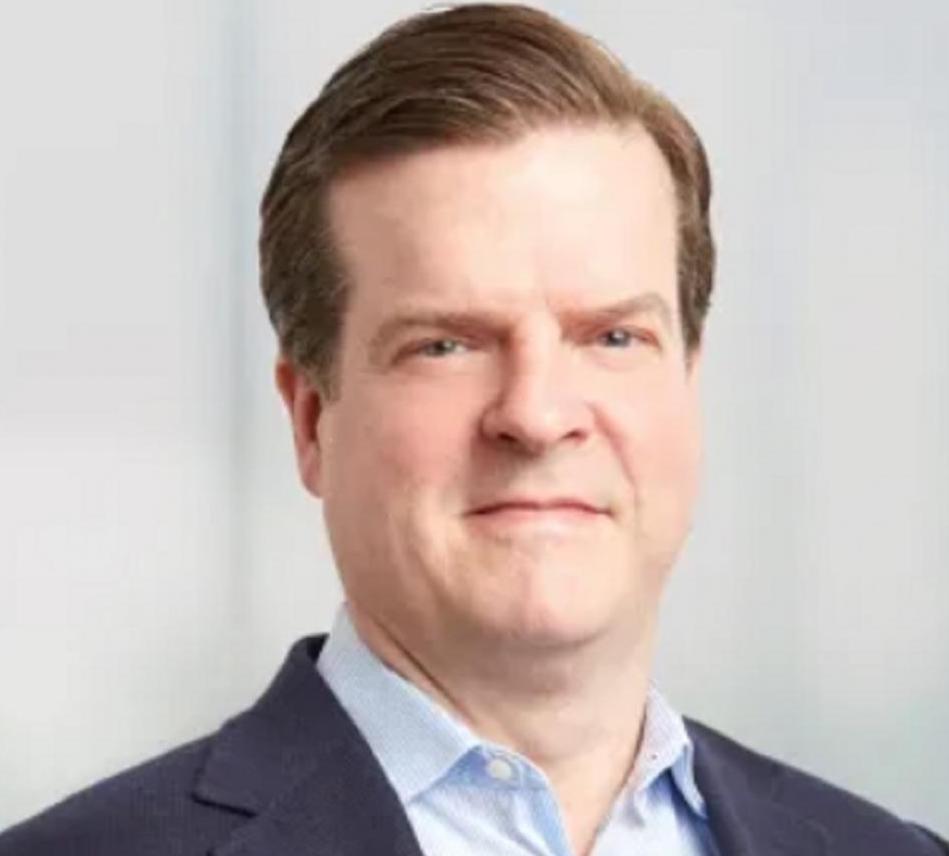
As for Mria, from 2015 to 2018, the fund managed the restructuring of the holding, which at that time controlled 170,000 hectares. After discovering fraud on the part of the owners of the agricultural holding, the Guta family, ACP worked to "save the company."
Innovatus is better known for trade finance. In a 2020 press release on the EBA website, it was mentioned that the fund provided USD 10 million in pre-export financing to "a group of companies specializing in the production and trade of grain and oil crops, livestock and sugar production." According to our data, we are talking about Agrovista. Later, the fund granted a similar loan to Allseeds.
What was the money used for?
Olympex Coupe International was created as an international project from the very beginning. Since 2009, GNT Group has been building the terminal in partnership with the American company CHS. At the same time, loans were taken by both the Ukrainian and the American side. In particular, in 2017, GNT Group took a USD 20 million loan from the EBRD.
Later, the group became the full owner of the grain terminal in Odesa — it bought out the share of CHS. It was for the redemption of this share and repayment of the debt to the EBRD that Groza and Naumenko needed ACP loans.
"In fact, all these funds were directed to the repayment of the EBRD loan and the purchase of a 26% stake in CHS Europe S.a.r.l. in the grain terminal Olympex Coupe International," the GNT Group stresses.
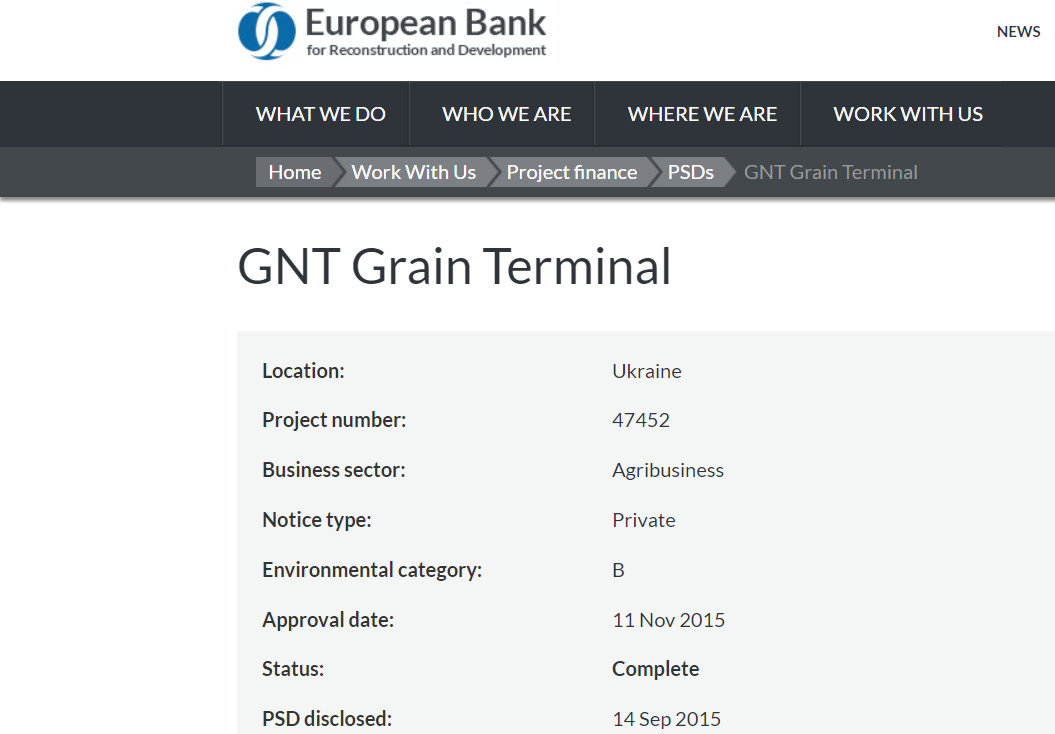
"The funds were used to refinance the EBRD loan to the group and strengthen its balance sheet," ACP confirms.
Creditors estimate the total amount of the debt at USD 142 million (taking into account the calculation of interest on loans): more than USD 118 million — financial obligations to ACP, the rest — to Innovatus.
Where CHS is in all this
We have mentioned CHS sporadically, but this line demands more than just a mention. So, the company invested in Olympex, and then Groza and Naumenko borrowed money to buy CHS's share. Why?
The thing is that there was a conflict with CHS as well. According to the terms of the contract, the American company was supposed to receive preferential conditions for transshipment at the terminal, but the conditions it actually saw did not meet its expectations. The company regarded this as deliberate actions aimed at ousting it from the asset. As in the case of American hedge funds, CHS turned to international courts — out of the USD 35 million CHS invested in the terminal, part of it was recovered through the court.
The market was well aware of the history of CHS and Olympex. And that's why, when everyone found out that the terminal and two American funds had problems, they involuntarily remembered ex-president Kuchma's "we have seen it before."
Along with this, questions arose for ACP and Innovatus: how they assessed the risks of working with Olympex, having the CHS case before their eyes. The funds say that the CHS line was studied. But it was assumed that this is not a systemic story.
The first problems
GNT Group admits that there are problems with the repayment of loans. Initially, it was expected that the loan would be short-term — for a period of two years. Apparently, during this time, GNT planned to find a partner or long-term investment in the development of the group. Then the russian invasion started, and the plans changed.
But ACP says that the problems began even before the war — GNT regularly did not pay interest on the loan. Even before the full-scale russian invasion, ACP granted GNT a debt repayment reprieve. The final repayment of the loan was expected on December 5, 2021, but none was transferred.
“Prior to the invasion, GNT Group repeatedly claimed that it was unable to pay even the interest on its debts because it needed to maintain significant reserves to continue operating. For example, at the end of 2021, GNT Group reported that it held only USD 58,000 in cash, while inventories and accounts receivable totalled more than USD 160 million," says ACP.
Groza and Naumenko have a different version: “we informed the creditors about everything, and written negotiations with ACP regarding restructuring and extension of payment terms were conducted until December 2022 inclusively.”
ACP underlines that this is false and emphasizes that they had a board meeting in October where ACP made it clear that they would only discuss a waiver if they receive information about what happened to the inventories in the first half of the year and if the pledges in Dubai are registered according to the agreement. Neither was ever provided. When GNT approached ACP in December to discuss, the US fund repeated these requirements. When ACP received an offer to launch negotiations after the enforcement started, ACP reiterated the same requirement. In August 2022, ACP suspended negotiations on the waiver pending information from GNT.
When GNT requested a negotiation with ACP in December, the US fund repeated these demands. ACP says it received an offer to come to the negotiating table after the start of the enforcement action. In August 2022, ACP suspended negotiations on the waiver of claims pending information from GNT.
Responding to a request for information from Latifundist.com, GNT Group CFO Dusan Denic said that in December 2022, these negotiations continued and the creditors assured them of their readiness for restructuring.
"And in a few days we learned that the creditors illegally held meetings of the Olympex Coupe International Company, fired the company's general director and changed the company's legal address from Odesa to Lviv," explained Dusan Denic.
***Note. ACP stated that Denic no longer has the right to represent GNT. The fact is that on February 14, the court of the city of Sarin (canton of Freiburg, Switzerland) issued a decision confirming the legality of the appointment of Raven Baker as a director in GNT Trade DMCC (the holding company for all Ukrainian assets of the GNT Group). That is, Denic, who acted in court on behalf of GNT Trade DMCC, does not have the authority to represent the group.***
But still, why Lviv? In Ukrainian realities, such re-registration raises suspicions. However, not from the American foundation. John Patton explained to UNIAN that this is due to strict business risk management protocols. The fund chose Lviv because the city is one of the safest in Ukraine adding that they are not unique in this sense — in a year, many enterprises have re-registered and relocated here.
Still, let's get back to the negotiations.
"As previously stated, we terminated the waiver negotiations in August 2022, pending information from GNT that was never provided. In December, GNT transferred USD 80.5 million from the group's UK company while the 'negotiations' were ongoing. All of our actions were legal and based on agreements signed by all parties, including documents in accordance with Ukrainian, English and Swiss law," ACP said.
According to ACP, in November and December, GNT paid almost USD 41.6 million to its affiliated legal entities from its Barclays account:
- GNT Europe SA, which is nominally owned by Dusan Denic, while Groza/Naumenko are the real owners. Most of the USD 41.6 million was transferred to GNT Europe SA
- Olimpex Coupe
- Ferko LLC
- Sunolta
- Prista Oil
- GN Terminal Enterprises
- Inzernoksport LLC
- Vidrodzhennia (Sunolta Group)
- Metalsukraine
GNT says that the terminal offered to pay creditors a share of the profits that appeared after the launch of the grain corridor on a monthly basis, and even negotiated restructuring.
"In December 2022, we offered to pay our creditors a part of our monthly profit. Secondly, we also proposed to jointly and transparently look for an investor or buyer for our business or part of it," Volodymyr Naumenko said in an interview with Censor.
He adds that in December last year, the company resumed its search for strategic investors. Abu Dhabi Ports (ADQ) and Yas Holdings (Elite Agro) were allegedly the last contacts. "But the sudden legal and information attacks on our company by ACP complicated further negotiations."
ACP has a contrary version of events: "This offer was made only in a text message after we started enforcement. So far, no information has been provided on what happened to the stocks. Neither has any financial information been provided about the current operations. Absolutely nothing."
What stands in the way of restructuring?
ACP is a renowned restructuring team. So why didn't the fund go for a restructuring of GNT's debts? The war and the risks associated with it have made creditors more willing to move towards many Ukrainian public companies, such as Kernel and MHP.
ACP emphasizes: "Unlike GNT, all of the above-mentioned companies continue to provide their creditors with credible information and insights on how their businesses are operating."
All because the funds' claims are not limited to late payments. Besides that, they accuse Groza and Naumenko of fraud.

What does it consist of? Creditors say that the owners of the Odesa terminal did not provide "clear information about the losses related to the liquidation of goods stocks." And they did it without agreeing with the creditors.
In simple words, Olympex stored multimillion-dollar grain stocks, thе substantial part of which were pledged by American fund Innovatus. ACP, in turn, has mortgages and pledges over assets/real estate. After the invasion, GNT stated that it had no access to the terminal in the early months of the war, the products were spoiling and had to be disposed of.
The Americans are certain that they are fooled. And they add that the versions about the damage to the stocks and the need to remove them were ever-changing.
"GNT Group has not yet provided any documents confirming the disposal of the stocks, despite numerous requests. It seems that it could have used the war in Ukraine as a cover for writing off stocks (grain and sunflower seeds) worth more than $130 million," ACP insists.
Another argument is that the funds' investigation showed that some GNT Group companies and companies owned by Groza and Naumenko were actively trading during the months when the creditors were informed that trading had stopped.
But let's get back to the "grain losses". The Innovatus story deserves special attention.
Grain of contradiction
GNT and Innovatus entered into an agreement for 2021 — USD 20 million in collateral for grain in the amount of double coverage and corporate rights of the group on equal terms with ACP.
The conflict situation arose due to the fact that GNT Group disposed of the pledged grain without agreement with the fund.
In the early months of the war, GNT explained this by claiming they had no access to the terminal since the beginning of the full-scale russian invasion. They supposedly gained it only in May 2022. When they opened the silos, they saw that the grain had spoiled, so they disposed of it.
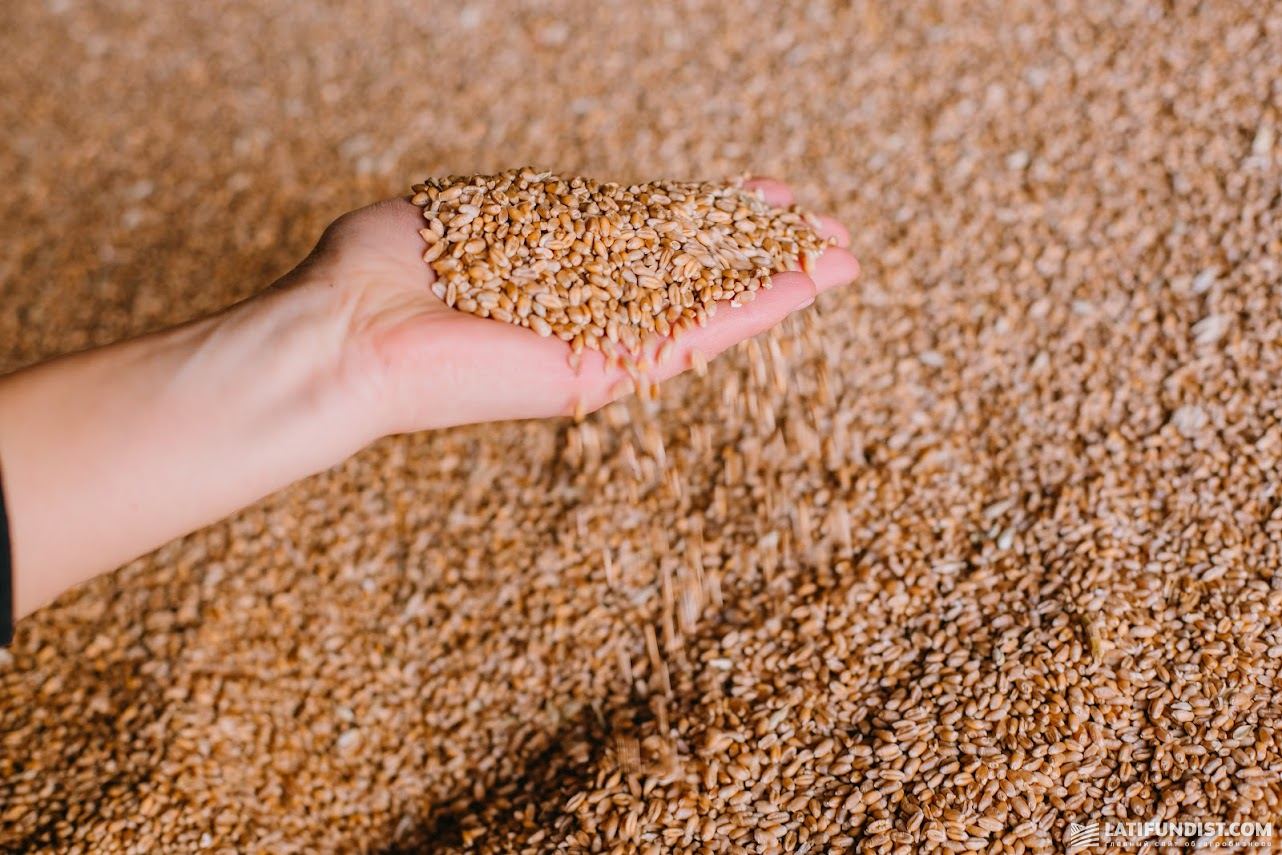
Responding to Latifundist.com request, the company admits that it did have access, although it was limited. "These were barley, wheat, and corn. The grain was stored in compliance with all standards. They were stored in silos. But there was one very important factor – the curfew. It made it impossible to ensure a proper turnover and aeration regime. I would like to emphasise that we always had access to the terminal, but it was extremely limited in the first months of the war," the company said.
The Odesa seaport operators we surveyed claimed that they had gained access to their terminals in the first months of the russian invasion. In addition, some of them noted that the situation with the grain is not common – it usually does not spoil so quickly (10 weeks). However, it should be accepted that storage technologies at the terminals are focused on fast grain turnover. Unlike linear grain elevators, which are designed for long-term storage.
"We had access. Of course, the work was nothing like in peacetime. But workers came to the terminal and carried out all the operations with grain," says an employee of one of the terminals in the port of Odesa.
Who else saw the spoilt grain
Groza and Naumenko claim that the spoilt grain was documented by an independent inspection conducted by the international inspection and certification company Bureau Veritas.
In turn, Innovatus insists that in any case, the borrower should have coordinated its actions with the lender. In addition, the lenders claim that Bureau Veritas actually inspected only 15% of the stored grain. The Bureau Veritas report contained no mention of corn, which represented the largest amount of grain.
"We have seen the Bureau Veritas report. It states that both wheat and barley have an unpleasant smell and the grains have sprouted. An objective answer about the condition of the collateral could only be obtained if it was inspected by inspectors appointed by us," Innovatus said.
Another core requirement of the lender is to refuse offers to sell grain to repay debt.
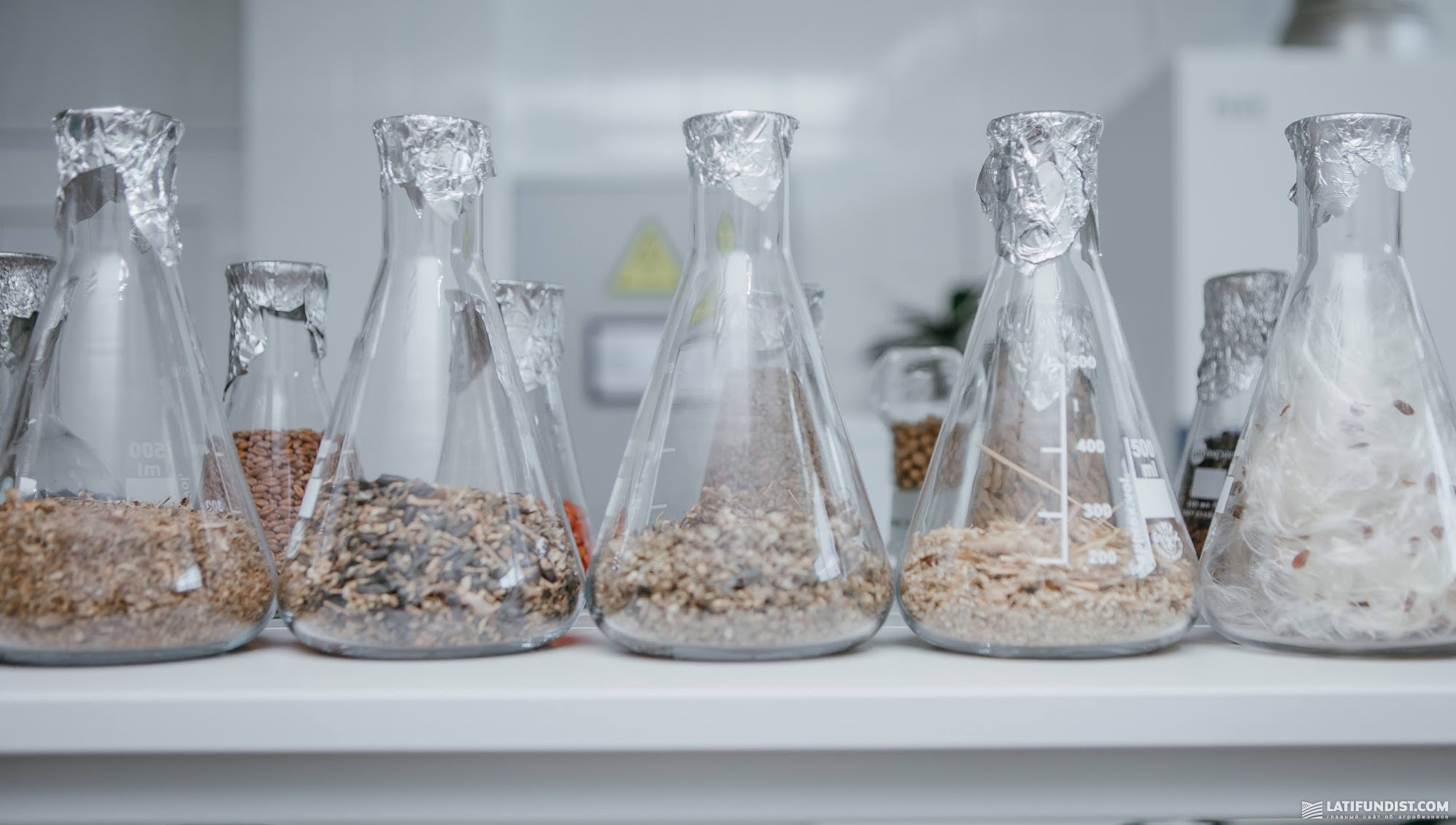
The fund explains that the terminal prevented inspectors from conducting a comprehensive inspection. They were only provided with documents, and the terminal did not allow them to see the grain itself.
Innovatus believes that in January 2022, a month before the invasion, there was no grain at Olympex.
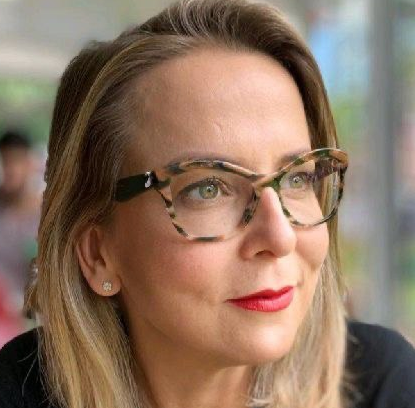
Ana Paula Firmato
Managing Director of Innovatus
"GNT Group has repeatedly refused our request to sell the pledged property (grain and sunflower seeds) before 24 February 2022. In particular, in January 2022, we made great efforts to find buyers for the grain, but they refused to sell it. The impression is that there was no more grain at that time"
And was there grain?
What is GNT's response to this? They say that since the launch of the grain corridor, they have not received any requests for Innovatus inspectors to visit the terminal.
However, the creditors claim that GNT denied ProControl's inspectors access to inspect the grain until the enforcement action was initiated.
Furthermore, in early June 2022, Innovatus hired SGS to conduct inspections of goods at the Olympex terminal. But GNT did not allow the surveyors to enter the premises and carry out the inspection.
GNT claims that in August it replaced the spoilt grain and filled the terminal's storages.
"With the opening of the grain corridor, we replaced the spoilt grain with new batches. Since then, the volume of grain has become sufficient to pay off our debt obligations, and we have notified our creditors," GNT emphasises.
The Americans countered: "We demanded an explanation for the lack of grain as a condition for resuming restructuring talks. And since we did not receive it, we had to go to court."
ACP is also concerned about the fact that GNT said something completely different. They say that the company of Groza and Naumenko stated that "the new grain does not belong to them". They add that this fact is confirmed in their correspondence.
"If the claims made by GNT are true, nothing should prevent them from settling their obligations now," ACP argues.
Corporate control is the ultimate goal
For three months now, the parties to the conflict have been in a phase of active confrontation. Originally, the creditors outlined two goals: to enforce debt collection and to gain "corporate control over the grain terminal in Odesa operated by GNT Group".
The American funds simultaneously initiated a procedure to claim GNT's property in four countries: Ukraine, Cyprus, Switzerland and the UAE, where GNT Group's entities are located.
It was within this process that in January 2023, the High Court of England made a decision that made headlines in Ukraine — a worldwide freeze on the assets of Volodymyr Naumenko and Serhiy Groza.
There are two formal reasons for the US companies' intention to take control of the Odesa terminal.
First of all, it is the largest collateral under the loan agreement with GNT. The parties signed the pledge agreement at the end of 2020. Under its terms, GNT Group pledged 100% of the authorised capital of Olympex Coupe International worth USD 176.6 million to the US company, which was almost 2.4x the loan amount at the time of the agreement.
And this, by the way, is what GNT Group is focusing on now. According to them, after the opening of the grain corridor, "the company has become potentially attractive to investors who decided not only to return their loan funds but also to make money by selling a cash-generating business."
"With the launch of the grain corridor, GNT Group has stable prospects for debt repayment, and Odesa port has become one of the few operational Ukrainian ports. And ACP clearly understood this," Serhiy Groza told Censor in an interview.
We couldn't avoid asking the company how much the terminal was valued at. GNT's reply was that it was about USD 350 million. The lenders pointed that there was no actual data on this. "Today, there is no financial information about the company's activities."
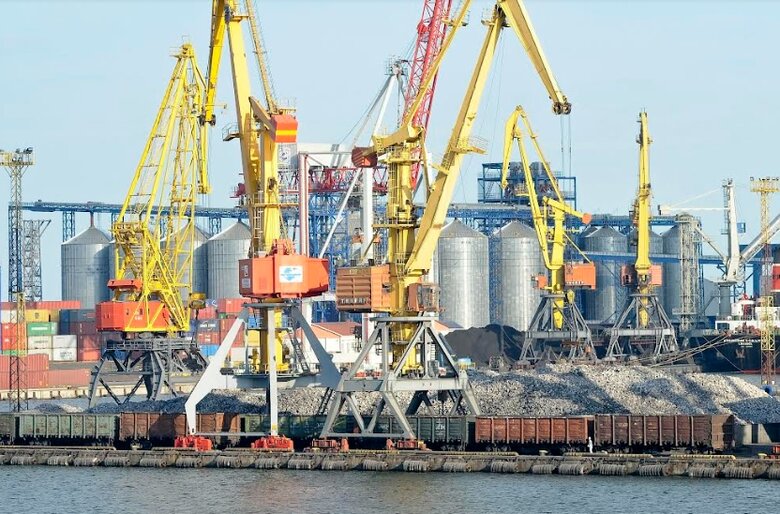
Breaking away from the group
Creditors insist that corporate control over the terminal is needed to prevent it from being re-registered to third parties. Are there any concerns about this?
The funds claim that this process is already underway. As evidence, they say that the owners of GNT "do not disclose details of the withdrawal of a significant part of the terminal's facilities" from the mortgage. For instance, Bank Pivdenny, which had part of the terminal's property as collateral, signed a sale agreement on February 13 "in favour of a legal entity that is associated in the market with Sunolta Group, which is controlled by Naumenko and Groza".
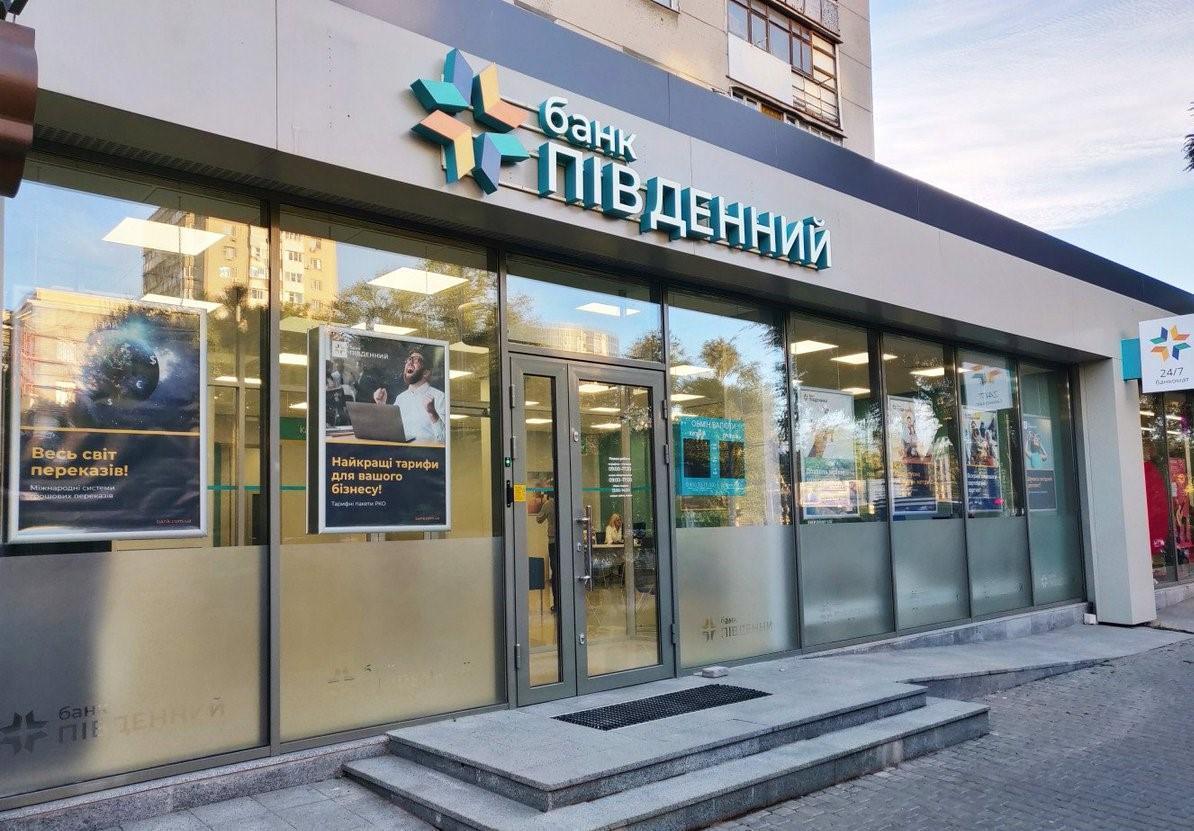
"It's telling that GNT claims their terminal is worth USD 350 million, but is selling half of Sunolta's terminal for only USD 3.6 million," ACP ironically says.
To verify this information, we requested extracts from state registers. As it turned out, Bank Pivdenny is indeed a mortgagee under a mortgage agreement that was concluded back in 2020. The mortgagor under this agreement is Olympex Coupe International. A grain terminal is mortgaged for a value of UAH 158.7 million. Under the terms of the agreement, the obligation to the bank is USD 18.5 million, and it is to be repaid by July 31, 2024.
Creditors assert that Groza and Naumenko borrowed the money from Bank Pivdenny through companies they control outside the GNT Group, including Ferko and Vtormetexport.
"But they used the assets of the GNT group to secure this loan," ACP adds.
At the same time, Sunolta Feed is holding property rights to the terminal's assets worth UAH 158.7 million, which are mainly silos and galleries. The register shows that its sole owner is Serhiy Fedorov, and its main activity is the wholesale of grain, unprocessed tobacco, seeds and animal feed. In other words, Sunolta Feed is not legally related to GNT Group.
However, ACP assures there is no doubt that Sunolta is associated with Groza and Naumenko. In support of this, they mention that in August 2022, GNT Group informed ACP about the sale of 63 thousand tonnes of sunflowerseeds from its own stocks at an enormous loss of USD 41.5 million. This happened back in May 2022. Allegedly, it was because the stocks were spoiled.
"We would like to draw your attention to the fact that GNT Group has not provided any supporting documents regarding the alleged damage to the sunflowerseed stocks. As it turned out, practically all of the sunflowerseed stocks owned by GNT Group were stored in the warehouses of Sunolta Group companies. In particular, 50,000 tonnes of sunflowerseeds were stored at the linear elevator of Vidrodzhennia LLC (Sunolta Group) in Holovanivsk, Kirovohrad region, which previously belonged to Ferko, a company controlled by Volodymyr Naumenko. Who bought all these huge stocks of sunflowerseeds at such a low price? Sunolta Group. This information is confirmed by the correspondence between ACP and Dusan Denic," the foundation adds.
ACP also shares an interesting fact: the maximum storage capacity of the Vidrodzhennia elevator is 50 thousand tonnes. That is, it was fully loaded exclusively with sunflowerseeds owned by GNT Group. According to publicly available data, in 2017, a sunflower oil processing plant was launched at the premises of Vidrodzhennia. The plant's capacity allows it to process up to 700 tonnes of raw materials per day.
"Most probably, the sunflowerseeds that were allegedly 'spoiled' were processed into oil at this plant and then sold at market value," the fund suggests.
There is a reference in public sources to the fact that Ferko LLC, one of the main trading companies controlled by Groza and Naumenko, is the owner of the Vidrodzhennya elevator.
GNT Group repeatedly assured that it never conducted any trading operations at least from April to June 2022, according to ACP.
"However, the data collected in the course of the criminal investigation shows that Ferko LLC actively traded from April to June 2022 and exported sunflower oil, sunflowerseeds and meal worth millions of US dollars, including to Sunolta Group companies," the creditors underscore.
Legal framework: lawsuits, lawsuits, lawsuits
A number of cases are currently being considered in Ukrainian courts as part of the conflict between GNT Group and its US creditors. The process involves two branches of the justice system: commercial and administrative courts.
No information on criminal proceedings against the Odesa terminal was found in the publicly available court register. However, this may indicate that the case of the disappearance of the pledged grain, which Innovatus claims has already been initiated, has simply not yet reached the court. At the same time, Innovatus notes that the state register contains information about the seizure of corporate rights of GNT Group companies imposed as part of a criminal case.
But these are all specifics. To avoid diving into the legal intricacies, we will outline only the main areas of the battles that the parties to the conflict are waging in the courts of Ukraine.
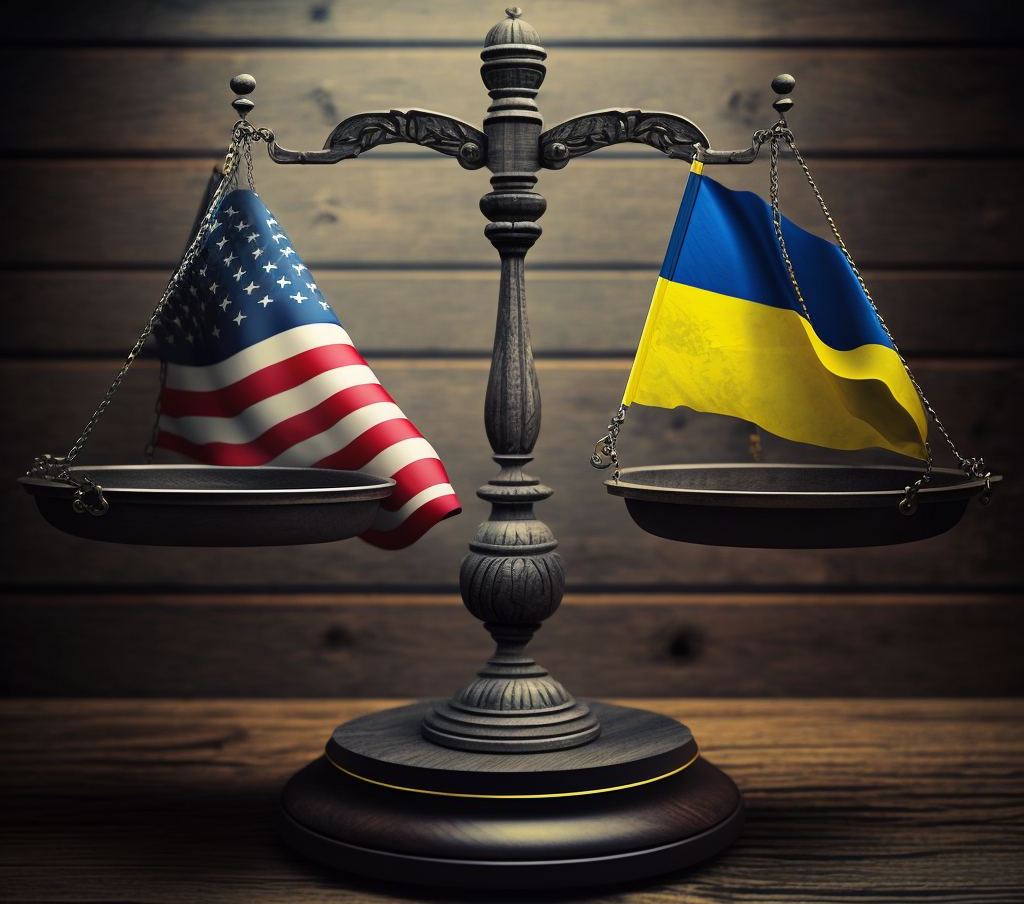
Above all, it is a "worldwide freeze" on the assets of GNT's owners, which was urged by the creditors. Madison Pacific Trust Limited, as their representative, applied to the Commercial Court of Lviv Region for the seizure of the authorised capital of three Ukrainian companies of GNT Group.
The court granted these applications, as it is in fact a formal procedure as GNT itself does not deny the existence of debts to creditors. The main thing in this regard is the seizure of the charter capital of Olympex Coupe International, the Group's largest entity in Ukraine.
Claims for the actual recovery of GNT Group's property to its creditors are still pending. Simply put, there is a possibility that the dispute will drag on for a long time.
GNT Group is trying to prevent its Ukrainian companies from being brought under the control of creditors. The Group filed a motion with the Cypriot court to prohibit any registration actions in relation to GNT's Ukrainian companies, and the court granted it. ACP confirmed this to us but clarified that the court would refuse to involve their representatives in the case in the future. The creditors see this as a de facto ban on changing the director appointed by them.
The dismissed managers of the Group's Ukrainian companies have also challenged their dismissals in the courts. Furthermore, they are trying to have the decision to "relocate" the offices to Lviv invalidated. So far, they have been fruitless. However, there is no "quick fix" here either. Appeal proceedings have already been opened on some of the applications, and some are scheduled for consideration in March.
Groza and Naumenko were able to bring back the director of Olympex, despite the existing court injunctions, the funds note.
How does Olympex operate?
Based on our data, some of the quota holders started terminating their contracts with the terminal amid the scandal.
"No, it is not so. The current situation does make some of our partners and contractors nervous, but since the start of the grain corridor, we have continued to cooperate with all companies that have decided to use our services after the unblocking of Odesa seaports," GNT countered.
Creditors reiterate that they do not have information about GNT Group's current income. However, they believe that the persistent emphasis on participation in the grain corridor is speculation, as "according to the USPA, the actual throughput of the Odesa seaport is currently less than 50%."

Hopefully, conflict resolution will become Ukraine's distinctive feature after the victory. The fact that this issue is on the table in the Office of President Volodymyr Zelenskyy and the US Embassy gives confidence in a more harmonious resolution of the conflict. However, there are cautions. "They would rather burn it than give it back," the sources close to Groza and Naumenko say.
There are quite a few such cases in the country these days. So, we can only hope for a civilised resolution to the conflict.
Kostiantyn Tkachenko, Valentyn Khoroshun, Latifundist.com
